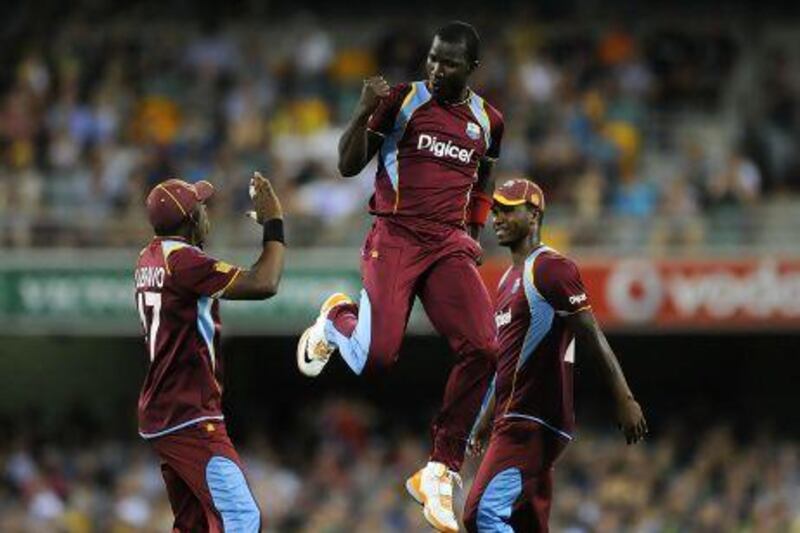West Indies ended a poor tour of Australia with victory in the one-off Twenty20 international, their first success against their hosts on Australian soil since the Perth Test in February 1997. In the intervening years, they have lost 10 Tests, 17 ODIs and two T20s there.
For any team, those are sobering statistics. For one that once ruled the roost, it is nothing short of depressing. The game before, the final match of the ODI series, saw Australia register their 500th win in the format. Pakistan are a long way behind in second place on 419. India have 405.
At the end of the 1996 World Cup, around the time that Australia were embarking on a decade of relentless dominance, it was West Indies that led the way with 201 ODI wins. Australia had 194, and Pakistan 164. That West Indies have won only 152 matches since is grim testament to their decline as a cricket power.
How are sporting dynasties established, and why do they decline? Michael Holding, a key member of the legendary West Indies sides, believes that success is cyclical. "West Indies had great players before we came along," he says. "But we didn't often have great teams."
Often, the catalyst is a captain or coach. For the NFL's Green Bay Packers, it was Vince Lombardi. For Liverpool Football Club, it was the arrival of Bill Shankly from Huddersfield in 1959. The Packers declined after Lombardi left the job. Liverpool did not, because the tradition Shankly established ensured a succession of great teams for 15 years.
It should be no surprise that Liverpool's decline in the early 1990s coincided with Graeme Souness moving away from the boot-room ethos. Change and renewal were needed, but not at the pace that Souness wanted and certainly not with some of the transfer choices he made.
Across the Atlantic, the San Francisco 49ers were also a dominant force in the 1980s. There too, the key word was continuity. Bill Walsh was their Shankly. When he left after three Super Bowl victories, George Seifert, his defensive coordinator, took over and led the team to two more.
For West Indies, captain Clive Lloyd held everything together and gave the players the belief that they were second to none. Viv Richards had a different style but conveyed the same message.
By the time Richie Richardson took over, decay had set in. A generation of greats moved on, without those of comparable talent to take their place. Renewal on the field is the trickiest thing of all, and in international cricket, you do not have access to the transfer system or the draft that football managers and American football coaches rely on.
So while Alex Ferguson could replace David Beckham with Cristiano Ronaldo, there were no such options for West Indies. When Gordon Greenidge and Desmond Haynes left the stage, nobody continued the tradition of great opening batsmen.
Australia got lucky. Craig McDermott's exit was followed by the emergence of Glenn McGrath as a fast bowler of the highest quality. Michael Slater's fall was not keenly felt because Justin Langer came in and pulverised attacks for half a decade in Matthew Hayden's company.
Those behind the scenes often have a lot to answer for. Vicente del Bosque won the Champions League with Real Madrid in 2002, after Zinedine Zidane's wonder goal in Glasgow. A year later, his side won the Primera Liga and lost in the Champions League semi-finals. Del Bosque was dismissed.
Seven years later, he won the World Cup with Spain. Real still have not added to their tally of nine European Cups. Greatness is no team's birthright. It requires sweat, and several stars to align.
Follow us
[ @SprtNationalUAE ]





